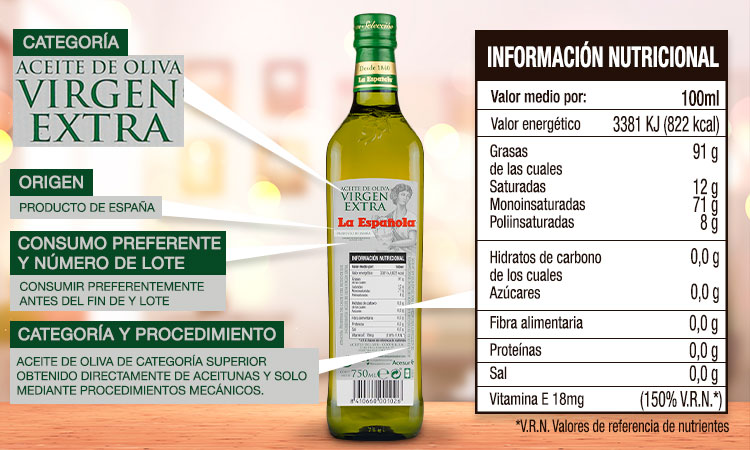«The traditional Mediterranean diet reduces the risk of suffering a heart attack, stroke or sudden death by 30% in people at high vascular risk»
Doctor Ramón Estruch, Senior Consultant at the Department of Internal Medicine of the Barcelona Clinical Hospital and associate professor at the University of Barcelona Medical School, is the National Co-ordinator of the PREDIMED study. Over several years, this study has analysed in depth the effects of dietary habits typical to the Mediterranean diet on the cardiovascular health of at-risk groups. In this interview, Dr. Estruch speaks to us about the results of the study and opens our eyes to how we eat in Spain.
In general, what have been the main conclusions of the PREDIMED study?
The PREDIMED study has evaluated the effects of the traditional Mediterranean diet on the primary prevention of cardiovascular disease and demonstrated with the highest level of scientific evidence that returning to the dietary habits followed by Mediterranean countries in the 1960s and 70s, which is to say, the traditional Mediterranean diet, reduces the risk of suffering a heart attack, stroke or sudden death by 30% in people with high vascular risk. This is a similar degree of protection to that provided by the best medicines, statins, but without the side effects which they often produce.
The study has focused on the prevention of cardiovascular diseases, but which other diseases can be prevented by the Mediterranean Diet?
There are studies which show that the Mediterranean diet is helpful in preventing diabetes, hypertension, lipid disturbance, metabolic syndrome, certain types of cancer and some neurodegenerative diseases such as cognitive impairment and Alzheimer’s disease.
What statistics are we dealing with now in Spain, regarding obesity in general, and specifically childhood obesity?
The obesity statistics in Spain are truly alarming. Currently, over 24% of the Spanish population is considered to be obese, a percentage higher than other European countries such as France, Italy or Portugal, although we haven’t reached the level of Mexico or the United States. But the truly worrying problem is childhood obesity, since some studies show that one in three Spanish children is obese. So evidently we need to take this problem more seriously, otherwise the future that awaits us is not at all promising.
«The obesity statistics in Spain are truly alarming. Currently, over 24% of the Spanish population is considered to be obese»
Which specific products have been focused on by the study, forming the basis of the Mediterranean Diet?
The Mediterranean diet is characterised by regular consumption of fresh and locally-sourced products. It entails the consumption of foods indigenous to the Mediterranean area, involving a high consumption of fats (higher even than 40% of total energy), principally in the form of olive oil (better if extra virgin olive oil), high consumption of cereals (better if unrefined), fruit, vegetables, legumes and dried fruits; a moderate to high consumption of fish; a moderate to low consumption of white meat (poultry and rabbit) and dairy products; a low consumption of red meat and meat products; and a moderate consumption of wine with meals. This formula has turned out to be the healthiest, given that many studies, amongst them PREDIMED, have shown that this diet prevents the onset and development of many chronic diseases.
Olive oil as the main source of fat. What makes it special and what benefits does it bring?
When a diet low in all fats is adopted, the body consequently increases the consumption of carbohydrates (sugars) and we now know that an excess of carbohydrates is damaging to health. It is essential to have some fat, but (unsaturated) vegetable fat is better than (saturated) animal fat. Thus, as well as the benefits brought by products rich in vegetable fat, such as, for example, olive oil and dried fruits, other foods are avoided which are not so healthy, such as refined carbohydrates. Olive oil should be the main source of fat, but it is much better if this is extra virgin olive oil. «Extra Virgin» oils, as well as providing oleic acid, contain a large amount of polyphenols. These bioactive compounds are synthesised by plants to counteract physical threats (such as the sun, for instance) and also to combat diseases. When humans eat them, we acquire some of these protective effects which they give plants. Finally, it is worth noting that, as well as these healthy properties, olive oil helps us eat other very healthy foods, such as vegetables.
Speaking of the Mediterranean Diet, can we say that it is «suitable» for the public as a whole or does it benefit some sections of the population more than others?
In the PREDIMED study mentioned earlier, we have been able to check the benefits of the Mediterranean diet in all scenarios analysed, males and females, elderly and young people, diabetics and non-diabetics, obese and non-obese people, people with and without hypertension, etc. In fact, the Mediterranean diet has been «tested» by millions of people throughout history and until now no harm has ever been attributed to it.
What are dietary habits like in Spain in general? Can you give us an example? Do we follow the Mediterranean Diet faithfully?
We Spaniards believe that we eat well but this isn’t the case. We are losing the Mediterranean diet passed down to us by our parents and grandparents by importing many habits belonging to other cultures, especially the English-speaking world. An increasingly large number of people in the United States are adopting the habits of the Mediterranean diet, while we are adopting theirs. «The world turned on its head». But the worst part is that we believe that we eat well. In the PREDIMED study, participants with an average age of around 70 received scores ranging from outstanding to notable on a scale measuring adherence to the traditional Mediterranean diet. I’m sure that if we gave this questionnaire to younger Spaniards, the results would be far worse. A lot of work remains to bedone, both for doctors, nurses, nutritionists and dieticians, as well as for the media and above all, the authorities. We must learn from the Scandinavians, who have managed to turn the statistics around and have become one of the countries with the best quality of life for the elderly.
Do you think that the government and official institutions are correctly encouraging these habits?
The government preachthe benefits of the Mediterranean diet, but they should get more involved and allocate more resources, although we are aware of the current economic situation. However, given the worsening of our dietary habits, we should demand that they take more drastic measures, such as, for example, taxing less healthy products more and encouraging healthier products (for example, by reducing VAT).
New miracle diets appear every year, particularly as summer approaches. What can we do to fight against them?
We know that miracle diets do not exist and that very strict diets (over short periods of time) which are accompanied by large changes in weight are normally followed by the weight being regained once they end, the so-called «yo-yo» phenomenon. It seems more logical to employ healthier measures to lose weight, such as, for example, a Mediterranean diet low in calories. With this strategy, loss of weight is more progressive and sustained more easily over time.
We understand that there is a follow-up to PREDIMED, which would be PREDIMED Plus. What changes will this new study bring?
The increase in the prevalence of obesity in Spain is attributed to the fact that we are moving away from the traditional Mediterranean diet and also to the reduction in physical activity. To sum up, we are losing the «Mediterranean lifestyle». Conscious of this problem, within the Biological Research Network Centre for Obesity and Nutrition of the Carlos III Health Institute, we are going to begin a new study we will call PREDIMED Plus to show that through a hypercaloric Mediterranean diet (low in calories), as well as a programme of physical activity and «behavioural therapy» that shows us how to enjoy and get the most out life whilst losing weight, reducing waist circumference (abdominal obesity) and, in the longer term, reducing the incidence of cardiovascular diseases and cancer. Quite a challenge.













